India is a diverse country. It cannot be defined by a singular commonality running throughout the region. You go from North to South and you will be surprised to see the variety that this place has to offer in terms of culture, language, geography, literature and other vitals that define a place. Similar, if you go across from the East to the West. Each place has its own distinct flavor.
Same can be said for Indian Cinema. The problem that has arisen with Indian Cinema and its image internationally is that it is thought to be synonymous with Bollywood, or the Hindi film industry based in Mumbai.
But if you have any slight idea about the demography and geography of the country, you would know that it is a very limiting definition.
Indian Cinema is much bigger than Bollywood, or the elaborate song and dance routines that it is identified with all over the world. The melodrama and the over-the-top action sequences do form a major part of commercial Bollywood films but Indian Cinema has got a lot more to offer to students of films.
The vast differences in the social and cultural milieu of the common Indian person gives rise to a similarly varied bank of stories and experiences. Also, the history of India informs us that it has always mingled with foreign cultures and that intermingling at the grassroot level has given birth of completely unique and hybrid forms of art and literature.
It has stories concerning the nitty-gritties of the most aristocratic families to the everyday struggles of the poorest individual.
Even the linguistic differences that are present here are so vast that there are entire industries running parallelly, making movies after movies day in and day out. Films are one of the most common mediums of mass entertainment in the country and they are loved by people of every region.
Thus, there are many industries running here on the basis on language and culture who make films concerning their own specific issues and also issues which are pan-Indian.
Some of the major industries based on language and region are as follows – Hindi (Parts of North and Central India), Gujarati (Gujarat), Marathi (Maharashtra), Malayalam (Kerala), Tamil (Tamil Nadu), Telugu (Andhra Pradesh and Telangana), Kannada (Karnataka) and Bengali (West Bengal) among others.
To know more about the Indian Films which made a mark at international film festivals, do check this article out –
We are bringing you the best and hidden gems of these regional film industries so that it can help you as well as us in recognizing the true scale and magnitude of Indian Cinema and to get to know the real cinematic beauty of the largest filmmaking industry of the world.
Malayalam Cinema
The Malayalam film industry, based in the southern Indian state of Kerala, has long been celebrated for its rich artistic legacy and commitment to producing meaningful cinema. Known for its distinct storytelling and realistic portrayal of human emotions, the industry has consistently pushed boundaries and contributed significantly to the world of art films.
J.C. Daniel is revered as the “Father of Malayalam Cinema” for his pioneering efforts in creating the first Malayalam feature film, Vigathakumaran, in 1928. His visionary spirit established the bedrock of the Malayalam film industry.
Over the years, Malayalam cinema has evolved into a powerful medium for social commentary and artistic expression. The industry has produced several pioneers, including directors like Adoor Gopalakrishnan, Aravindan, and Shaji N. Karun, who played instrumental roles in shaping the identity of Malayalam art cinema.
As the industry moves forward, it will undoubtedly continue to leave an indelible mark on the world of cinema, captivating audiences with its artistic brilliance.
In this article, we will delve into the unique characteristics of the Malayalam film industry and explore its noteworthy contributions to the realm of art cinema.

1 Chemmeen
- Director – Ramu Kariat
- Year Released – 1965
- Major Awards / Nominations – National Award for the Best Feature Film, Certificate of Merit at the Chicago International Film Festival, Gold Medal at the Cannes Film Festival for Best Cinematography
- Other Films by this Director – Neelakuyil, Mudiyanaya Puthran
Chemmeen based on the novel of the same name by Thakazhi Sivasankara Pillai, tells the tale of a forbidden love affair between Karuthamma, a Hindu fisherman’s daughter and Pareekutty, a Muslim fish trader’s son. Set against the backdrop of the coastal village of Chellanam in Kerala, the film portrays the social and cultural barriers that the lovers must overcome.
The film also examines the struggles of fishermen and their dependence on the unpredictable sea, drawing a parallel between the tempestuous nature of the ocean and the turbulent lives of the characters.
Chemmeen left an indelible mark on the Malayalam film industry and paved the way for the emergence of socially conscious and realistic storytelling. The film’s success opened doors for filmmakers to explore unconventional themes and challenge societal norms. It inspired a generation of filmmakers to pursue narratives that went beyond mere entertainment and delved into deeper aspects of human existence.
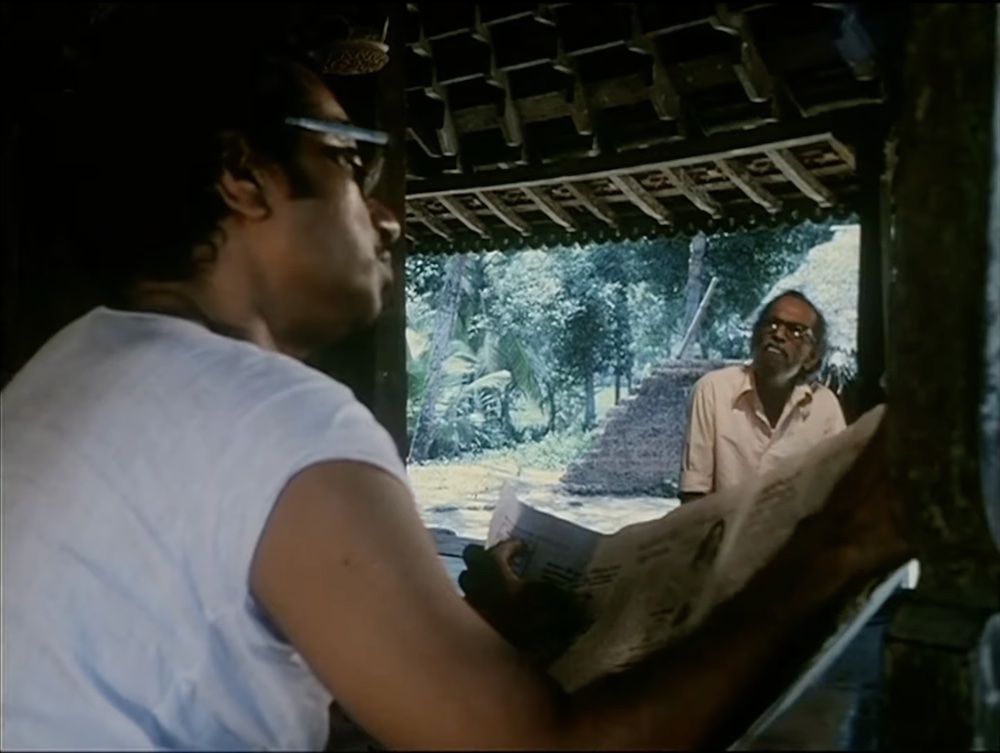
2 Elippathayam
- Director – Adoor Gopalakrishnan
- Year Released – 1982
- Major Awards / Nominations – National Award for the Best Feature Film, Kerala State Film Awards for Best film, Sutherland Trophy
- Other Films by this Director – Mukhamukham, Kodiyettam, Anantaram, Mathilukal, Vidheyan, Swayamvaram, Kathapurushan
Elippathayam (Rat trap) is set in the remote and decaying feudal household of Unni, the protagonist, the film delves into the themes of alienation, isolation, and the loss of identity. Unni, played brilliantly by Karamana Janardanan Nair, is depicted as a reclusive and introverted individual living in the shadows of his crumbling ancestral home.
As the sole heir burdened with the responsibilities of the household, he finds himself trapped in a cycle of stagnation and decay, unable to break free from the shackles of tradition and societal expectations. It stands as a powerful exploration of human existence and the entrapment of the individual within the societal framework.
Elippathayam stands as a masterpiece of art cinema and a significant contribution to the rich legacy of the Malayalam film industry.
Gopalakrishnan’s skillful use of long takes, minimal dialogue, and atmospheric visuals creates a sense of unease and introspection, drawing viewers into the disconcerting world of the protagonist. Elippathayam continues to captivate audiences with its enigmatic storytelling and remains a timeless work of art that pushes boundaries and challenges conventional filmmaking norms.
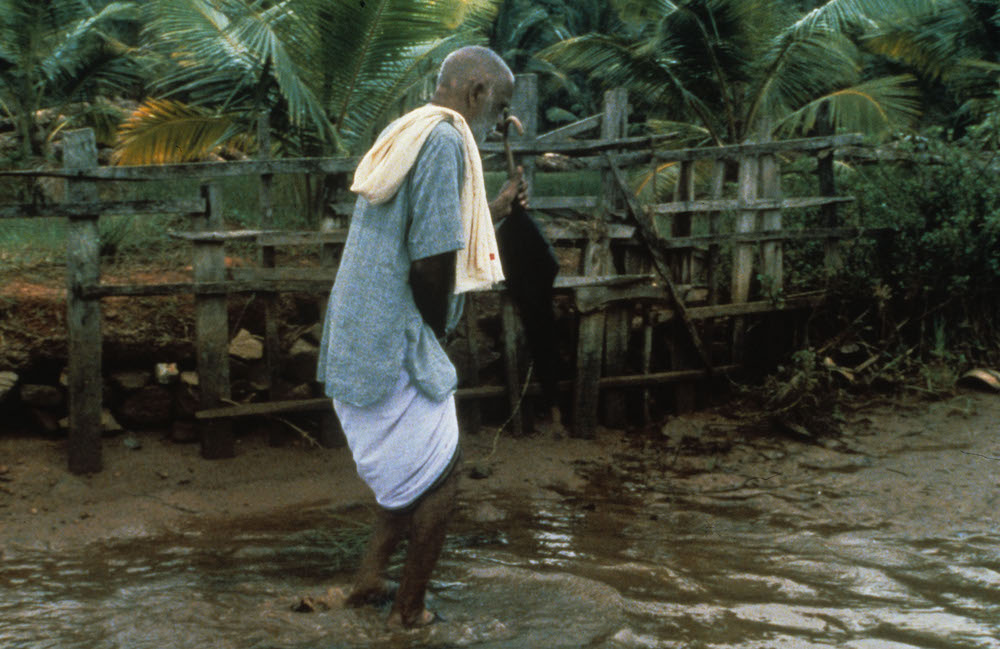
3 Piravi
- Director – Shaji N. Karun
- Year Released – 1989
- Major Awards / Nominations – National Award for the Best Feature Film, Golden Camera (Special Mention) at Cannes Film Festival, Winner of Silver Leopard at Locarno International Film Festival
- Other Films by this Director – Swaham, Vanaprastham, Kutty Srank
Piravi (The Birth) tells the heart-wrenching story of a father, played by Premji, who anxiously searches for his missing son, Unni, portrayed by Baby Ashwathy. The film is set against the backdrop of a small fishing village in Kerala, where the protagonist’s anguished journey unfolds. As days turn into weeks and hope slowly fades away, the film delves into the depths of the father’s desperation, capturing the raw emotions and psychological turmoil he experiences.
Piravi stands as a monumental masterpiece in the history of Malayalam cinema. Released in 1989, this poignant and emotionally charged film explores the themes of despair, resilience and the human spirit in the face of an inexplicable tragedy.
Shaji N. Karun’s directorial prowess, coupled with mesmerizing cinematography and exceptional performances, has solidified Piravi as a timeless classic that continues to captivate audiences even today. During his active years, the Malayalam film industry was also undergoing rapid advancements and making its presence felt all over the world.
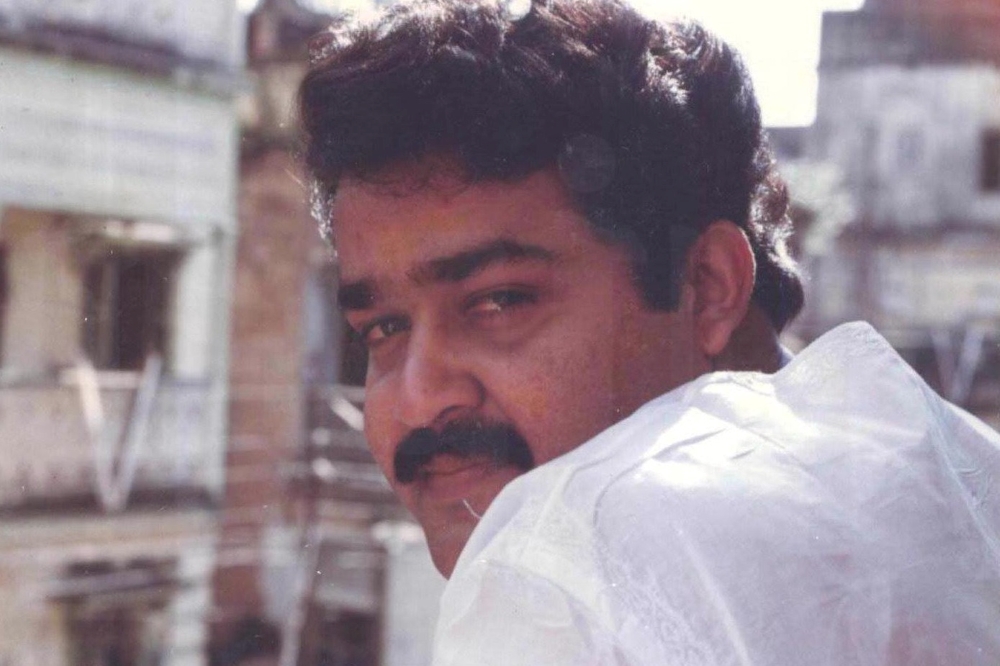
4 Vasthuhara
- Director – G. Aravindan
- Year Released – 1991
- Major Awards / Nominations – National Film Award for the Best Feature Film in Malayalam, Kerala State Film Awards for the Best Film; Best Director and Best Story
- Other Films by this Director – Oridathu, Uttarayanam, Chidambaram, Kanchana Sita, Thampu
Vasthuhara (The dispossessed) is based on the short story of the same name, written by C. V. Sreeraman. The story revolves around Venu, played by Mohanlal, a rehabilitation official tasked with relocating refugee families to the Andaman Islands.
It captures the harsh reality of displacement and the plight of refugees seeking solace in a foreign land and highlights the struggles of the marginalized, forced to take on menial jobs and endure bonded labor. Some hold onto hope, longing to return to their homeland, while others succumb to despair.
It serves as a poignant reminder of the struggles faced by displaced individuals and the ongoing search for belonging and freedom in an ever-changing world.
G. Aravindan is considered one of the pioneers of the Malayalam New Wave, a movement that emerged in the 1970s, focusing on realistic and socially relevant cinema. He broke away from conventional storytelling methods and brought a fresh perspective to the industry.

5 Shantham
- Director – Jayaraj
- Year Released – 2001
- Major Awards / Nominations – National Film Awards for the Best Feature Film
- Other Films by this Director – Desadanam, Karunam, Daivanamathil, Ottaal
Shantham (Peace) explores the themes of communal harmony, love, and forgiveness against the backdrop of a riot-torn society. Through its poignant narrative and powerful performances, Shantham delivers a thought-provoking message of unity and compassion.
Jayaraj, known for his socially relevant films, skillfully weaves together multiple narratives and explores the complex dynamics of communal tension. He uses Shantham as a platform to address deep-rooted prejudices, mistrust, and the importance of embracing humanity amidst divisive forces.
The film delves into the psychological and emotional consequences of communal violence, shedding light on the scars it leaves behind.
Shantham played a pivotal role in changing Malayalam cinema by addressing social issues, promoting communal harmony, encouraging realistic narratives. The film’s impact resonated beyond its initial release, inspiring a wave of socially conscious storytelling and pushing the boundaries of artistic expression in the Malayalam film industry.

6 Ain
- Director – Sidhartha Siva
- Year Released – 2015
- Major Awards / Nominations – National Film Award for Best Feature Film in Malayalam, Kerala State Film Awards for Best story
- Other Films by this Director – Ennivar, Aanu, 101 Chodyangal
Ain is about Maanu, an aimless youngster with low personality flees to Mangalore after witnessing a murder. His transformation occur when he meet Saira Banu and with the influence of the outer world, his emotional growth and spiritualism makes the rest of story inspiring.
Ain garnered significant attention for its unique narrative and compelling performances. Sidhartha Siva, who also wrote the screenplay, skillfully explores the themes of social inequality, love, and human dignity in this thought-provoking drama.
The film’s success not only contributed to the recognition of Sidhartha Siva as a promising filmmaker but also shed light on the importance of addressing social issues through cinema.
The film’s exploration of caste discrimination and the struggles faced by marginalized communities in Kerala reflects the Malayalam film industry’s commitment to addressing social issues and pushing the boundaries of artistic expression.
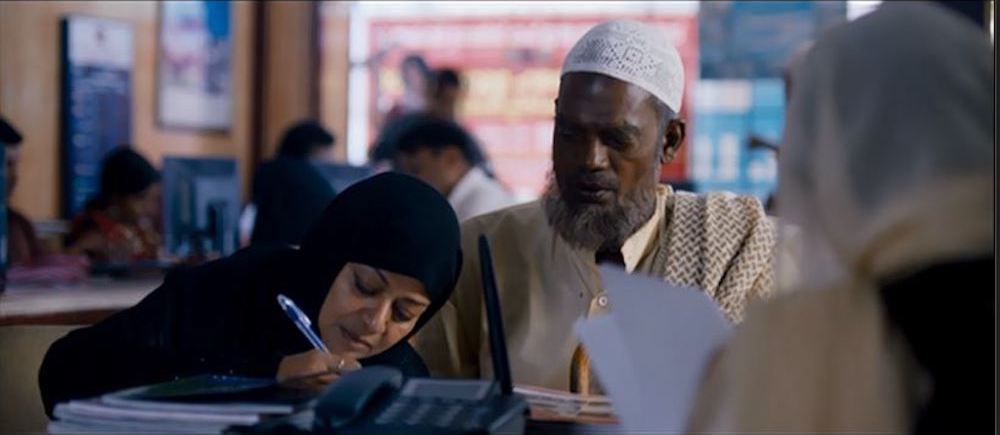
7 Adaminte Makan Abu
- Director – Salim Ahamed
- Year Released – 2011
- Major Awards / Nominations – Indian submission for Academy Award for Best Foreign Language Film, National Film Award for Best Film, Kerala State Film Awards for Best Film
- Other Films by this Director – Kunjananthante Kada, Pathemari, And The Oscar Goes To…
Adaminte Makan Abu (Abu, Son of Adam) tells the story of Abu and Aishumma, a devout Muslim couple living in a modest village in Kerala. Abu, a small-time vendor who sells items like prayer caps and rosaries, dreams of undertaking the Hajj pilgrimage, a spiritual journey that holds immense significance for him. As the couple faces financial hardships, they strive to gather the necessary funds to realize Abu’s dream. Their unwavering faith, determination, and unwavering love for each other form the core of the film’s narrative.
Salim Ahamed’s direction and screenplay offer a sensitive portrayal of the characters, their aspirations, and the emotional conflicts they encounter along the way. The film also addresses broader themes of spirituality, devotion, and the inherent human desire for purpose and fulfillment.
The film’s universal themes and outstanding performances have left an indelible impact on both critics and audiences, solidifying its place as one of the most poignant and memorable films in Malayalam cinema. Adaminte Makan Abu is a shining example of the Malayalam film industry’s ability to produce thought-provoking narratives that resonate with people’s hearts and minds.
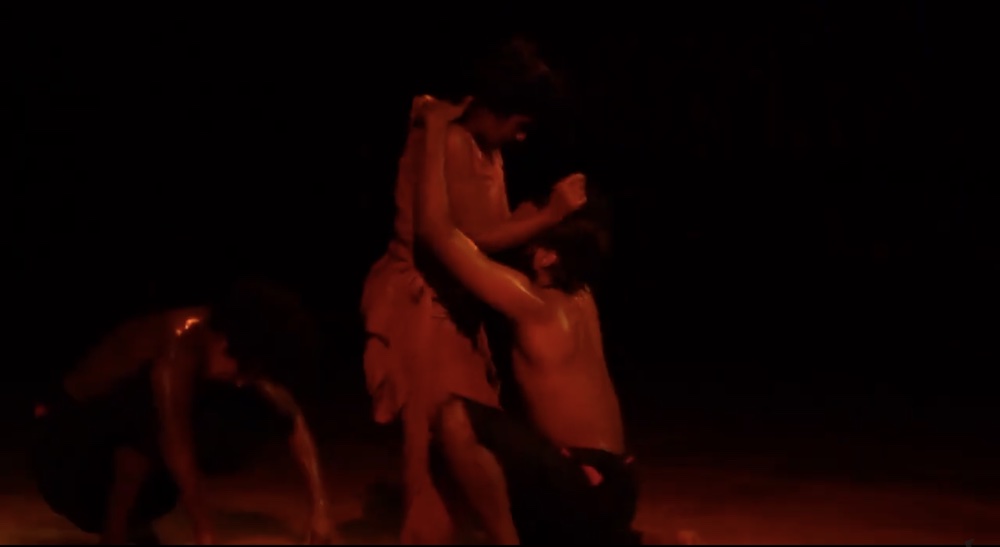
8 Pulijanmam
- Director – Priyanandanan
- Year Released – 2006
- Major Awards / Nominations – National Film Award for Best Feature Film
- Other Films by this Director – Silencer, Sufi Paranja Katha, Neythukaran
Pulijanmam is adopted from N Prabhakaran’s play that tackles the themes of caste-based discrimination with unflinching honesty, shedding light on the harsh realities faced by marginalized communities in India.
The film is set in the rural backdrop of Kerala and revolves around the life of Kari Gurukkal, a Dalit man played by actor Murali. He is a courageous and resilient character who fights against the deeply entrenched caste prejudices and social injustices that surround him. He belongs to the Pulaya community, historically oppressed and discriminated against in Kerala.
The film captures the pain, humiliation, and resilience of individuals who are forced to endure systemic oppression solely based on their birth.
Pulijanmam stands as a powerful and poignant film that addresses the pressing issues of caste discrimination, social inequality, and religious superstitions. Priyanandanan’s directorial finesse, coupled with strong performances and a compelling narrative, make it a significant contribution to the Malayalam art cinema landscape.
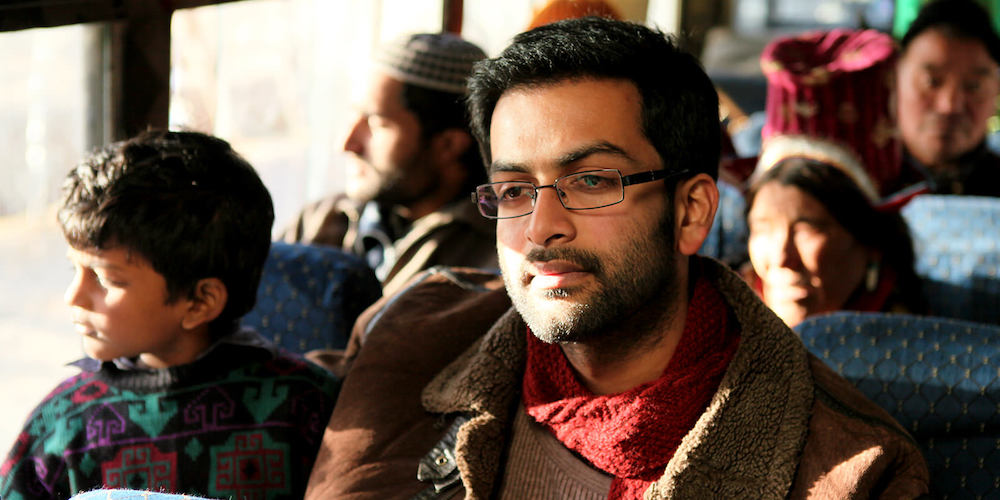
9 Veettilekkulla Vazhi
- Director – Dr. Biju
- Year Released – 2010
- Major Awards / Nominations – National Film Award for Best Feature Film in Malayalam
- Other Films by this Director – Akasathinte Niram, Perariyathavar, Valiya Chirakulla Pakshikal, Veyilmarangal
Veettilekkulla Vazhi (The Way Home) is the story of a Doctor played by Prithviraj Sukumaran working in a prison hospital. His haunting past where he lost his wife and child to a tragic death has now been assigned to help a suicide bomber who later dies with her last wish was to find her child in Kerala and hand over him to her terrorist husband.
The film portrays the essence and simple beauty of relationships, diverse Indian cultures, its people and heritage while revealing the effects of terrorism and change that the modern times have brought with it.
Veettilekkulla Vazhi serves as a powerful reminder of the enduring human spirit and the longing for love that transcends geographical boundaries through compassion and humanistic approach. Dr. Biju’s commitment to artistic excellence and his ability to create thought-provoking cinema make Veettilekkulla Vazhi a significant contribution to the Malayalam film industry and a testament to the power of storytelling.

10 Kalla Nottam
- Director – Rahul Riji Nair
- Year Released – 2019
- Major Awards / Nominations – National Film Award for Best Feature Film in Malayalam
- Other Films by this Director – Ottamuri Velicham, Kho-Kho
Kalla Nottam is said to have started without an initial script in hand till the third day of shoot, the film revolves around two kids who are passionate about cinema, steals a camera from a store which was kept for surveillance who later end up on the wrong side along the path.
Kalla Nottam delves into the world of childhood innocence, where imagination and curiosity reign supreme. Through their innocent perspective, the film portrays the beauty of imagination, the joys of friendship, and the simplicity of childhood dreams.
Kalla Nottam stands as a testament to Rahul Riji Nair’s directorial prowess and his commitment to telling thought-provoking stories. The film reinforces the significance of art cinema in Malayalam cinema and further cements Rahul Riji Nair’s position as a promising filmmaker who is unafraid to tackle socially relevant subjects.
This rounds up our list of art films from the Malayalam film industry. These comprise of some of the gems that are not as much in the public eye, but Indian Cinema is a treasure trove filled with such examples. This can be a good jump off point if you want to foray into the depths of Malayalam cinema, and watching all these films and directors will definitely guide you in the direction you would want to take after that.
Please do tell me in the comments below if you know of some brilliant but obscure films that I have missed. Until then keep reading and watching films. Adios!
